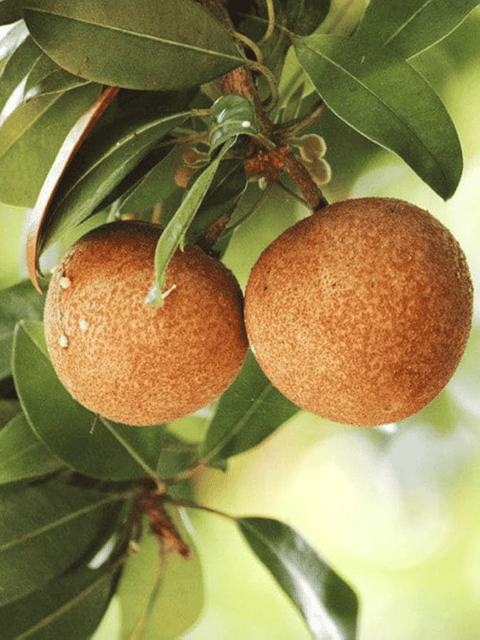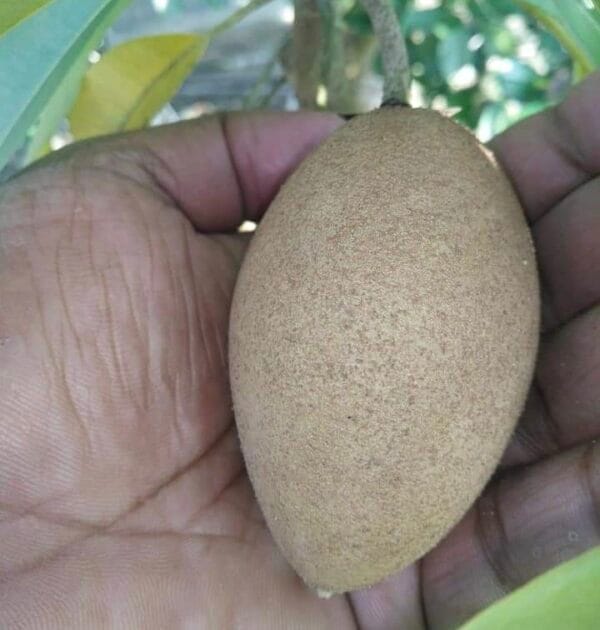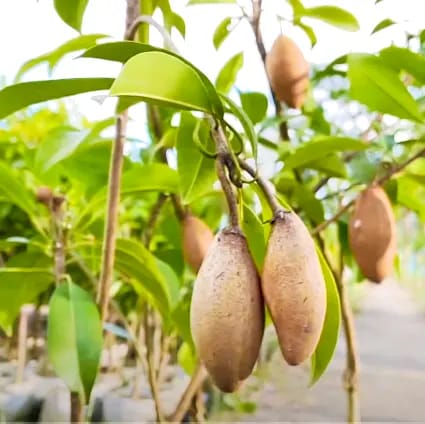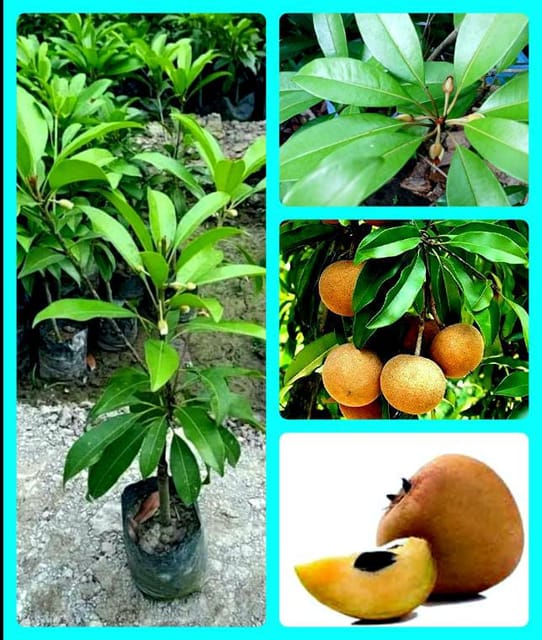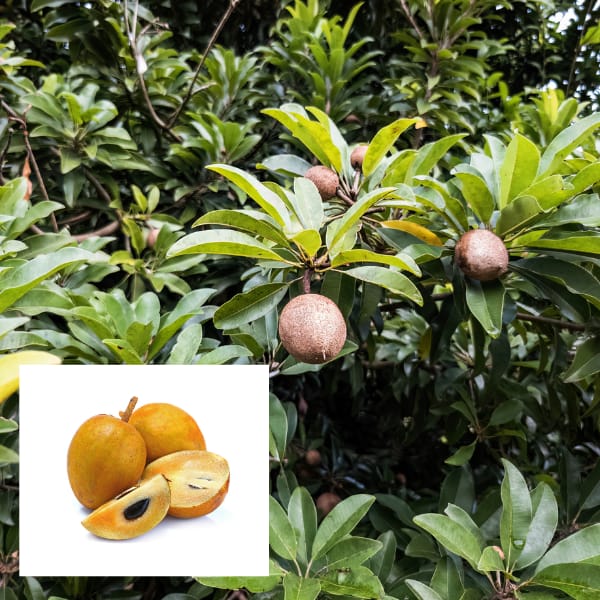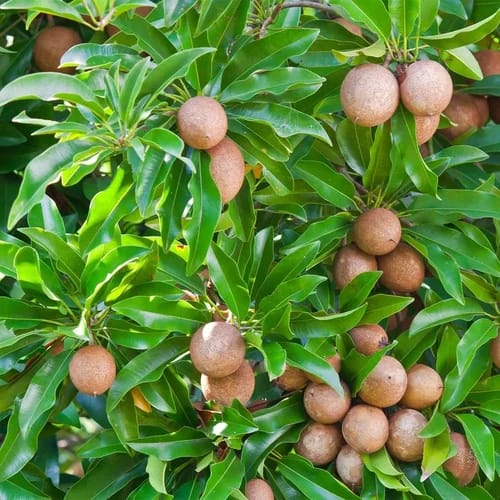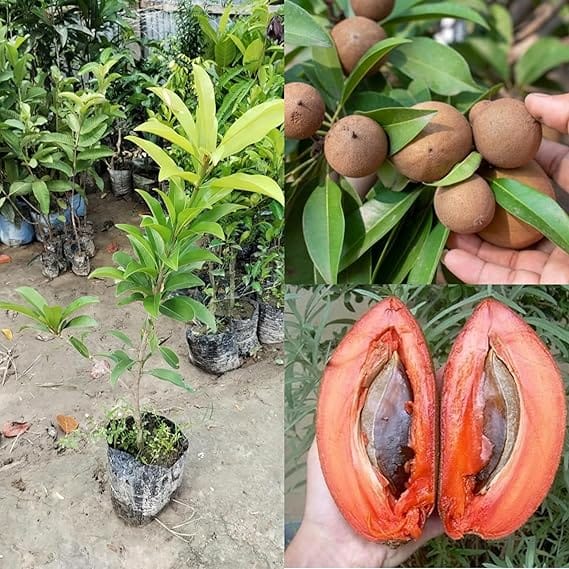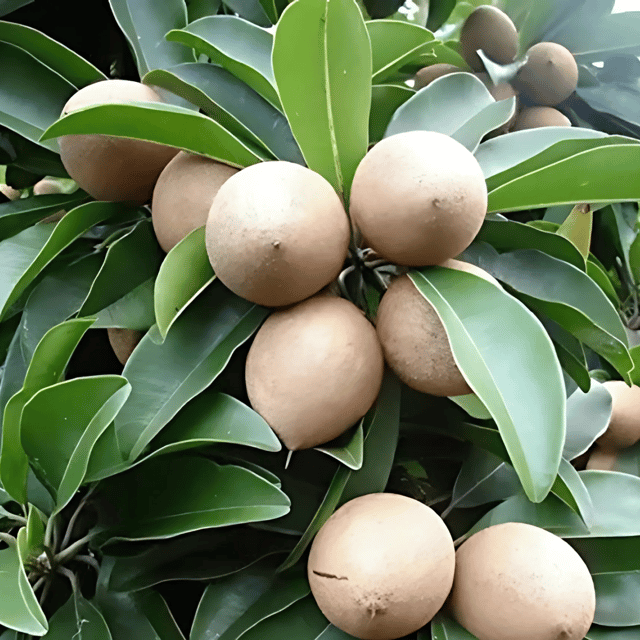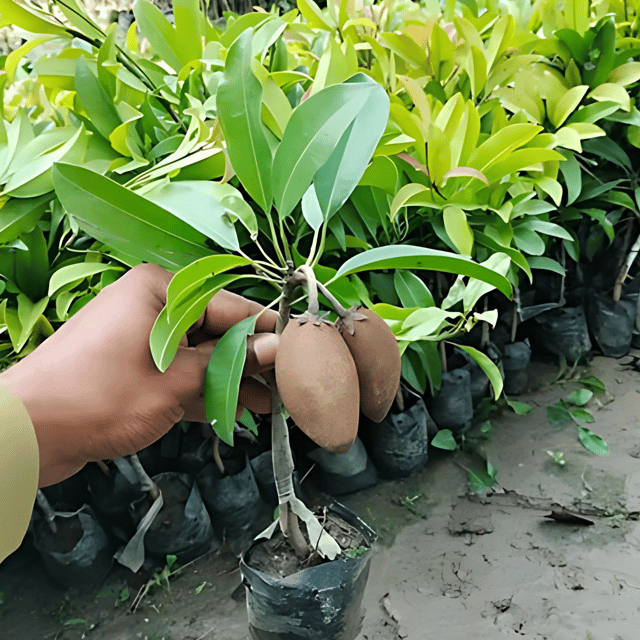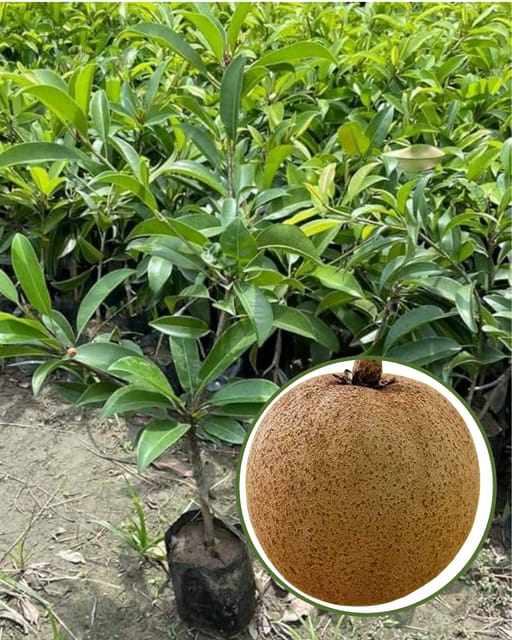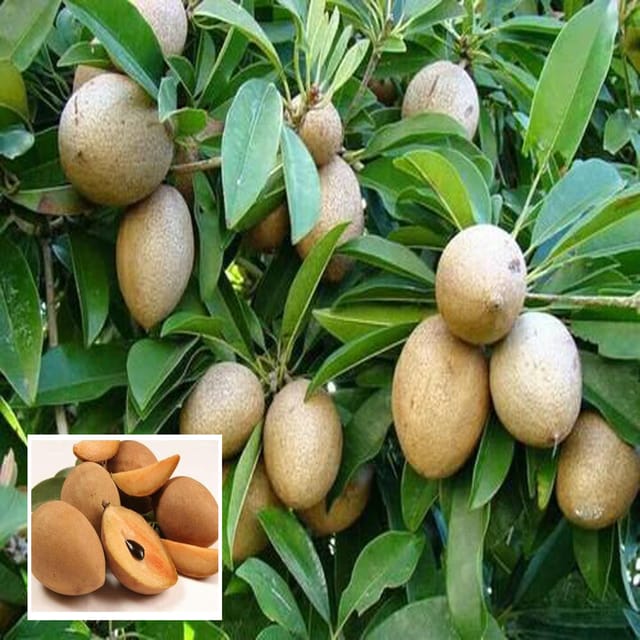Choose your location
Please provide your delivery pincode to see products available in your area
Sapote(Chiku)
Experience the Sweet Delight of Sapote (Chiku) Trees with Paudhewale
Sapote, commonly known as chiku (Manilkara zapota), is a tropical fruit tree cherished for its sweet, brown, and grainy flesh. The chiku fruit is a favorite among fru...
Experience the Sweet Delight of Sapote (Chiku) Trees with Paudhewale
Sapote, commonly known as chiku (Manilkara zapota), is a tropical fruit tree cherished for its sweet, brown, and grainy flesh. The chiku fruit is a favorite among fruit lovers for its unique flavor, reminiscent of brown sugar and pear. At Paudhewale, India’s first online marketplace for plants, seeds, and gardening essentials, we offer a wide selection of healthy sapote trees sourced from trusted sellers across the country. Shop with us today and enjoy free shipping on all orders across India!
Why Choose Sapote (Chiku) Trees?
1. Delicious and Nutritious Fruit
Sapote fruits are not only delicious but also packed with essential nutrients. Rich in vitamins A and C, dietary fiber, and antioxidants, chiku is an excellent choice for a healthy snack. Its creamy texture and sweet flavor make it perfect for eating fresh, blending into smoothies, or making desserts.
2. Tropical Adaptability
Sapote trees thrive in warm, tropical climates, making them ideal for various regions across India. They can tolerate a range of soil types, provided they are well-draining, making them versatile for many gardeners.
3. Low Maintenance Requirements
Once established, sapote trees are low-maintenance and drought-resistant, requiring minimal care. This makes them a perfect option for both novice and experienced gardeners alike.
Popular Varieties of Sapote (Chiku) Trees at Paudhewale
At Paudhewale, we offer a variety of sapote tree cultivars that cater to different tastes and growing conditions. Here are some popular options to consider for your garden:
- Black Sapote: Often referred to as the "chocolate pudding fruit," black sapote has a rich, sweet flavor and is excellent for desserts. Its flesh is dark brown, resembling chocolate, and is high in nutrients.
- White Sapote: Known for its creamy texture and sweet flavor, white sapote is perfect for fresh eating. It has a light yellowish flesh and a delightful taste that pairs well with various dishes.
- Indian Sapote (Chiku): This is the traditional variety known for its sweet, grainy flesh. It is commonly found in markets and is cherished for its exceptional taste and nutritional benefits.
Explore our full collection of sapote trees at Paudhewale and find the perfect variety for your unique gardening needs!
How to Care for Sapote (Chiku) Trees
Caring for sapote trees is straightforward, allowing you to enjoy their fruits with minimal effort. Here are essential care tips to ensure your sapote trees thrive:
1. Sunlight Requirements
Sapote trees prefer full sunlight and should receive at least 6-8 hours of direct sunlight daily. Plant them in a sunny location to promote healthy growth and fruiting.
2. Watering Needs
While sapote trees are drought-tolerant, regular watering during the initial growth phase is essential. Water them deeply to encourage strong root development. Once established, they can withstand dry conditions.
3. Soil and Fertilization
Sapote trees thrive in well-draining, sandy loam soil enriched with organic matter. Incorporate compost into the soil before planting. Fertilize your sapote trees in spring with a balanced fertilizer to support healthy growth and fruiting.
4. Pruning and Maintenance
Regular pruning helps shape the tree and improve air circulation. Remove any dead or damaged branches to promote healthy growth and fruit production.
5. Temperature and Climate
Sapote trees thrive in warm tropical and subtropical climates. They can withstand mild frost but are best suited to areas with consistently warm temperatures.
Common Challenges with Sapote (Chiku) Trees and Solutions
While sapote trees are generally hardy, they can encounter a few challenges. Here are some common issues and how to address them:
1. Pest Infestations
Sapote trees can attract pests such as aphids and fruit flies. Regularly inspect your trees for signs of infestation and use organic pest control methods, such as neem oil, to keep them healthy.
2. Diseases
Common diseases affecting sapote trees include root rot and leaf spot. Ensure proper air circulation around the tree and remove any fallen fruit or leaves to prevent disease spread.
3. Poor Fruit Development
If your sapote trees are not producing fruit, it may be due to insufficient sunlight or nutrients. Ensure they receive adequate light and consider fertilizing to support healthy fruit development.
Why Buy Sapote (Chiku) Trees from Paudhewale?
When you choose Paudhewale for your sapote trees, you can expect quality, convenience, and a variety of options. Here’s why you should shop with us:
- Wide Selection of Sapote Varieties: We offer a diverse range of sapote tree cultivars, ensuring you find the perfect fit for your garden.
- Free Shipping Across India: Enjoy free shipping on all plant orders, ensuring your sapote trees arrive healthy and ready to thrive in your garden.
- Trusted Sellers: Our sapote trees are sourced from experienced growers across India, ensuring you receive high-quality plants that are well-suited to local conditions.
FAQs about Sapote (Chiku) Trees
1. Can I grow sapote trees in pots?
Yes, sapote trees can be successfully grown in pots. Choose a large container with good drainage and place it in a sunny location to ensure healthy growth.
2. How long does it take for sapote trees to bear fruit?
Sapote trees typically start to bear fruit within 3-5 years of planting, depending on the variety and growing conditions.
3. Do sapote trees require special care?
Sapote trees have specific care requirements. Ensure they receive adequate sunlight, water, and nutrients to support healthy growth and fruit production.
Conclusion
Sapote (chiku) trees are a delightful and rewarding addition to any garden, offering delicious fruits and low-maintenance care. With a variety of options available at Paudhewale, you can cultivate your very own sapote paradise. Shop our selection today and enjoy free shipping across India!

